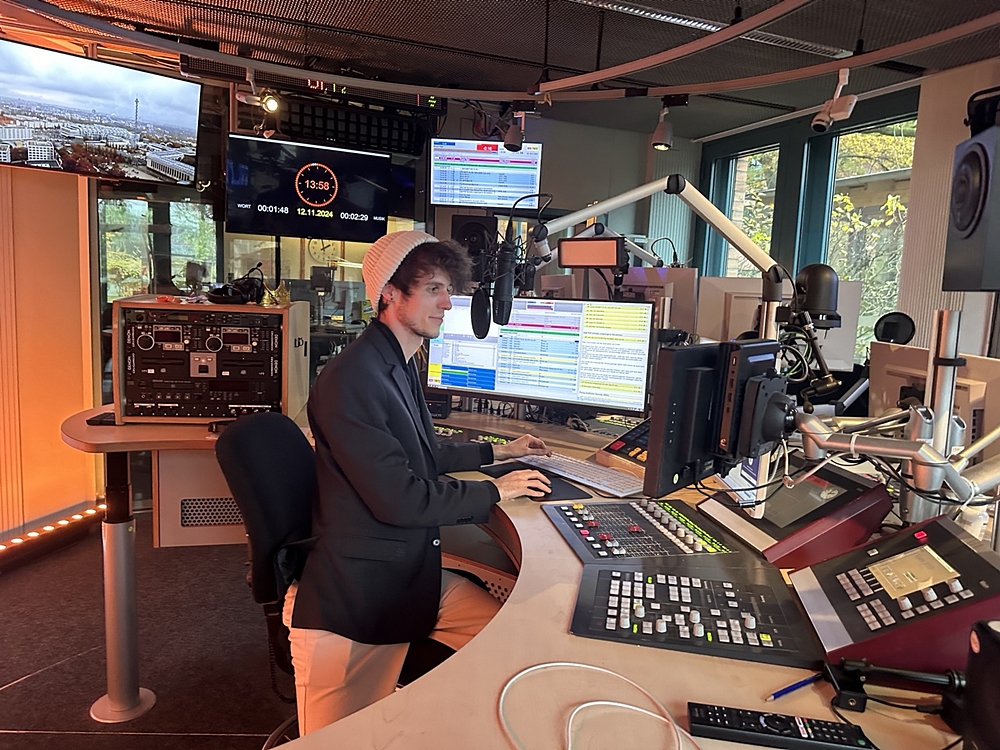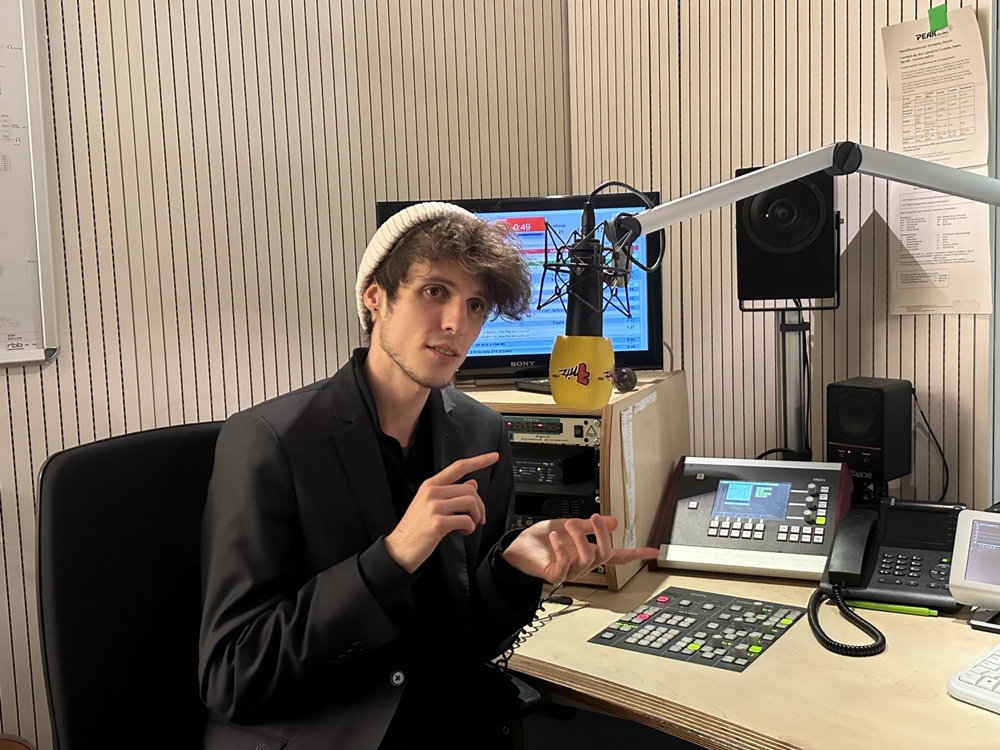
"Beste (Best) Musik K-Pop," Germany's first radio show exclusively for K-pop, was launched on Oct. 14 with host Justin Tempe (shown) at rbb Radio Fritz (Berlin-Brandenburg Broadcasting) in Potsdam, Germany. Shown is Tempe sitting at his radio studio.
By Lee Dasom and Honorary Reporter Jasmin Mikolay
Photos = Jasmin Mikolay
"Radio Fritz with Justin Timpe! Best K-pop Music!"
This is the opening line delivered in Korean of "Beste (Best) Musik K-Pop," Germany's first radio show of its kind, by Yang Sangkeun, director of the Korean Cultural Center (KCC) in Berlin.
Radio Fritz, an affiliate of the public broadcast network rbb (Berlin-Brandenburg Broadcasting), on Oct. 14 started airing the program, which comes on every other Monday from 8 p.m. to 10 p.m. Featuring K-pop and its idol acts as well as K-dramas, the show is hosted by Justin Timpe, an avid fan of K-pop who discovered the genre about 10 years ago through a friend.
He said he turned his passion into a job that "matches his career interests."
Korea.net Honorary Reporter from Germany Jasmin Mikolay on Nov. 12 visited Radio Fritz to interview Tempe, who shared stories on his program's production and his zeal for K-pop.
Below are excerpts from the interview.

Justin Timpe, host of the radio show "Beste Musik K-Pop," on Dec. 12 gives an interview to Korea.net at the rbb Radio Fritz studio in Potsdam, Germany.
Briefly introduce yourself.
I'm a broadcaster who has hosted radio and TV programs since 2016. I am in charge of the show "Beste Musik K-Pop" and a producer of rbb's morning show.
How did hosting the program feel the first time?
It felt like a dream. Radio Fritz searched two years for someone to host a K-pop program. When the production staff found out that I am a K-pop fan, they invited me to do a test broadcast and were satisfied with my performance. Everything leading up to the first show went faster than expected. The KCC in Germany helped me a lot with the language barrier. As a K-pop aficionado, I must say this process felt unreal.
What is the purpose of your show?
It's about forming a community platform because it's hard for K-pop fans around the world to gather and communicate at a single venue.
How do you select the music?
We usually introduce the most recently released or the latest popular songs. But we sometimes also cover tracks from prior generations.
What difficulties have you faced in running the show?
K-pop is content in which visual as well as audio elements are important. The biggest limit is that we can't cover the visual factors on the radio. Also, two hours isn't enough to for a biweekly radio program to cover Korean pop, idol acts and culture. I want to cover K-pop in more depth through other media such as podcasts or TikTok.
How popular is Hallyu (Korean Wave) in Germany?
While attending the recent KCON (K-pop music festival) in Frankfurt and events held by the KCC in Germany, I felt the considerable popularity of and interest in Hallyu in Germany. Even some large shopping streets in Berlin are lined with Korean restaurants and clothing stores.
Why do you think K-pop is popular worldwide as well as in Germany?
It's because K-pop has infinite potential for development. Once you listen to it, you see its appeal that has enraptured the world. In this situation, the Westernization of K-pop is like a lever raising its global popularity because the genre is familiar to and affects foreigners who aren't even used to K-pop. "APT.," the hit by Rose and Bruno Mars, is a key example of this.
What do you remember most from your first show?
I shed tears of joy after getting a barrage of positive comments after the first show. One listener said, "This is exactly the show we wanted, please keep introducing good songs." The production staff was also happy about this and said they'd never received such an explosive response for a morning or evening broadcast.
What are your goals as both a K-pop fan and the show's host?
My biggest goal is to create a space for people who love Korean culture to communicate and inspire each other. I hope this program becomes such a platform. This is just the beginning as I hope to open more possibilities.
dlektha0319@korea.kr